CRN 11773 Assignment Sample – Operations and Quality Management 2022
1. Introduction
Operation management deals with concept of task planning which transform resources to final product in a relevant manner. Additionally, operation management (OM) coordinates all task based on needs of clients that support in generation of market growth. This report is highlighting 4-star deluxe Knossos Boutique Hotel which is situated in Chania and delivers luxury hotel services to customers. Inclusion of luxury services to customers through maintaining standards has been established by Greece support in developing relevancy in services.
Offering cultural experiences to customers while affording that hotel increases attraction of that hotel for tourists who have high interest on culture. Evaluation of external condition of Greece has been identified through implication of PESTLE model. Moreover, presences of competitors in market are determined through analysis of internal capability of this hotel.
2. Critical analysis of current business performance
3. PESTLE
| Factors | Impact |
| Political | ● Lack of stability within regulation which are developed by Government of Greece [Santandertrade.com, 2021]
● Poor legislative power due to frequency alternation of political position of Government. ● EU trade barrier fails to eliminate technical adoption approach byhotel industry. ● Presence of free trade zones that offer flexibility to new organisations entering hotel industry that are established with Greece. ● Appearances of Regional Trade Agreements of Greece (RTA) develop settlement with foreign partners that support in execution of import and export [Wto.org, 2021] |
| Economical | ● 0.69% inflation rate shows economical growth from 2019 and remains at -0.57% that makes a barrier in buying capability of customers [Statista.com, 2021]
● Investing capability of investor increases due to enhances of annual GDP rate by 13.62% [Statista.com, 2021] |
| Social | ● Employment opportunity of Greece increases due to deduction of unemployment rate by 0.06% [Statista.com, 2021]
● 52.2% gender gap in present with Greece that creates limitation in delivering relevant services to customer in an organisation due to appearance of organisational conflict for workplace discrimination [Eige.europa.eu, 2021]. |
| Technical | ● Smart Room service supports customer in terms of selection of services that are offered by an organisation through getting notification on smart phones
● Mobile Room Keys helps in accessing room through accessing mobile app of that hotel that reduces requirement of physical room key [Attala, 2021] ● Market research has been conducted in a easy manner through inclusion of Big Data that reduces complication about generation of action plan |
| Legal | ● Consumer protection legislation: Law 2251/1994 declines issues that are faced by consumers of Greece in terms of codification of business standards that bring flexibility for an organisation [Ec.europa.eu, 2021]
● Mortgage credit: Law 4438/2016 that support in maintaining property through delivering high security to loan [Ec.europa.eu, 2021] |
| Environmental | ● Eco-innovation is European policy that supports in maintaining energy use by hotel industry [Ec.europa.eu, 2021].
● Environmental technology verification gets included under environment policy that brings relevance within resources used for conversation input into output. |
Table 1: Macro factor analysis of hotel industry in Greece
[Sources: Ec.europa.eu, 2021]
Political
Free trading provides opportunity to hotel industry through enhancing profit by involving new organisations entering in Greece. However, investment rate increases due to frequent changes in strategies that have been fixed by a company in achieving its target.
Short policy makes conflict in execution a task through following a working pattern. On the other hand, long strategies cannot be generated by an industry due to poor effectiveness of legislation that is published by Greek Government [Santandertrade.com, 2021].
Moreover, exporting and importing potentiality rises through developing partnership with foreign countries by implication of RTA. Motivation of employees may be generated throughdelivering high flexibility in conduction of tasks. European barriers create obstacles in adoption of technology that decline opportunity in making development of products. Buying decisions of customers fluctuate due to frequent changes in regulation for adoption of products that involve in alternation of market trends of Greece.
Economic
Economic growth of Greece cannot be executed for economic crisis in 2020 due to outbreak of Covid-19. Regional trading gets restricted due to spreading of infectious disease all over world. Moreover, customers get a scope to invest over product for deduction of uncertainty within their lifestyle during pandemic situations. However, poor annual GDP rate makes barriers in offering high standard products to customers. Linking with similar context, in 2021 inflation rate is increases that bring issues in investing over expensive products [Statista.com, 2021].
Moreover, hotel industry gets a scope to develop its services and products through investing in innovation. New strategies have been developed by an organisation in Greece to engage customers for maximizing their profit. Compared with previous fact, generation of innovation within organisation makes extension of operational cost. Price of product or services may increase for managing operational cost of customers.
Social
Income scale of customers may increase due to deduction of unemployment rate of Greece that involves decades of their bargaining power. Moreover, hotel industry gets a scope to maintain its labour market through allocation of employees based on demand of organisation [Statista.com, 2021]. Available vacant places have been fulfilled through engaging employees in a relevant manner.
On the other hand, profit scale gets decreased due to offering poor quality services to customers as workplace discrimination deduct engagement of employees. An organisation may face difficulties in maintaining a workforce due to introduction of gender gaps. Tasks that are conducted by employees through delivering their effort may be poor due to improper selection of staff based on gender instead of their potentiality.
Technology
Actions have been conducted by an organisation through evaluation of data that are saved in big data. Big data is a technical approach for extraction of information in a systematic manner through implication of software. Storing of data within this software provides an opportunity for evaluation of information.
Progress rate of an organisation has been analysed through tracking of actions that are executed by employees. As claimed by Attala [2019], market segmentation has been conducted through collection of information from market about needs of customers. Additionally, reviews of customers according to product or service experiences are also gathered for generation of effective strategies.
Safety has been provided to information that is used for buying practise by customers which ensures quality of action of an organisation. Expectation of customers has been fulfilled through generation of goals by analysing information.
However, issues that are faced regarding accessing room keys have been solved through implication of mobile applications (apps). As per views of Attala [2019], different services that are offered by an organisation are identified by customers without physical appearances at hotel through accessing official apps that are developed by hotel. Smart reservation services have been offered to customers by delivering personalized suggestions based on their previous orders.
Legal
Execution of distance selling creates issues in terms of maintaining a relevant contract between stakeholders. Registration of an organisation within “Consumer protection legislation: Law 2251/1994” that facilitates in declining misleading issues through structuring improper agreements [Ec.europa.eu, 2021].
Additionally, advertisement which has been conducted by an organisation is through aligning irrelevant information that generates issues in developing buying decisions. Unfair contracts are declined through using articles and sections incorporated within this article.
However, guarantee and its effectiveness have been ensured by an organisation through exposing their acceptance of these mentioned regulations. Loans that are taken by customers for affording an expensive product get protected through applying mortgage credits. Poor buying capability of purchasers has been discarded through offering their financial flexibility in terms of offering loans.
Environment
Energy that has been used for activation of technology is maintained through following standards included under Environmental policy of Greece. However, innovation in eco friend equipment facilitates an organisation in saving energy at low cost [Ec.europa.eu, 2021]. An organisation gets a scope to involve environmental, conscious consumers within an organisation that helps in sustaining of strategies.
4. SWOT
| Strength
● High standard hotel services increases engagement of customer ● Covering restaurant capacity of 120 seating system beside pool ● Presences of public spaces of 40 seats |
Weakness
● High employee turnover rate ● Poor customer services ● Appearances of customer complaints ● Lack of cleanliness |
| Opportunity
● Decline of operational cost ● Improvement in employee performances |
Threats
● Market competitions ● Poor innovations ● Poor food authentication offered by restaurant. |
Table 2: Micro factor analysis
[Sources: Created by Author]
Strength
High quality services of product become major preference of customer which increases their engagement towards an organisation. Moreover, capability of delivery of food services has been maintained through execution of seating arrangement that creates a refreshing ambiance for customers. As stated by Oblak et al. [2017], buying behaviour of customer needs to be determined by a company for developing decisions. On a similar note, offering reading spaces through arranging libraries for tourists who have visited that place for enhancing their knowledge about new places in a peaceful ambiance.
Weakness
Retention rate of employees cannot be maintained within this hotel due to lack of employee satisfaction. A turnover rate of an organisation increases due to delivery of training to employees regarding changes appearing in services. As suggested by Chiat and Panatik [2019], cost has been invested by an organisation for raising quality of performance through delivering accurate training to staff. Shifting of employees after gaining knowledge from training sessions makes loss of investment.
Reduction of hygiene makes decreases of cleanliness that raises customer complaint about poor hygiene. Presence of account in social media platforms makes promotion of services that are offered to customers. Poor experiences of customers after availing services are shared by customers through comments on digital platforms. New customers get distracted from negative comments which forecast dirty services while delivering food products.
Threats
Market competition increases due to extension of negative reviews that provides competitive advantages to other hotels that are offering substituent products through maintaining cleanliness. As mentioned by Dave et al. [2017], lack of estimation of stocks is required for developing products that may decline interest of customers for not meeting needs. Hygiene has become a major need of customers during Covid-19 through implication of innovations. Lack of innovative ideas may decline with food products which reduces authentication.
Opportunity
Investment has been conducted by an organisation through investing over performances customers get satisfied in terms of getting high quality services from an organisation. Generation of organisation goal through analysing market demands support an organisation in terms of fixing strategies which declines loss. As claimed by Long et al. [2020], development of schedules through following social responsibilities helps in achieving a goal. However, operational cost has been decreasing through engaging skilled employees for improving quality of services.
5. Porter’s 5 Forces
| Bargaining power of buyers | Bargaining power of suppliers | Competitive rivalry | Threats of new entrance | Threats of substituent |
| High | High | High | Low | Low |
Table 3: Market competition analysis
[Sources: Created by Author]
Buyers bargaining powers
Presences of buying opportunity of purchaser increase bargaining power of customers. As discussed by Aguayo et al. [2017], presences of technical innovation increases value of a product that grabs attention of customers. This particular context highlights that poor inflation makes deductions of economic condition in Greece. However, price of services that are offered by this hotel is high which makes it a barrier in affording that service to clients. Thus, this hotel is facing high forces for excessive bargaining power of service users.
Suppliers bargaining power
Availability of suppliers who are engaged in supplying raw material to customers reduces bargaining capability of suppliers. Like other authors, Kumar [2019], execution of high value activity increases interest of customers through developing trustworthy relationships with suppliers. Stock issues of an organisation can be solved through maintaining healthy labour relations with suppliers.
Additionally, implications of outsourcing approach an organisation to get a scope to deliver premium quality services. Moreover, Covid-19 generates travelling limitation which makes deduction maintaining supply through allocation of outsourcing approaches. Thus, this hotel needs to develop partnerships with local suppliers which may increase forces due to poor availability of raw material that are offered by suppliers.
Threats of substitutes
Presence of similar types of product may create limitations in terms of appearing in market competitions. As explained by Hussein and Muchemi [2019], achievement of organisational objectives supports an organisation in extending competitive advantages. On a similar note, different services such as restaurant and lounge are offered by this hotel along with room services that decline threats of substitutes.
Threats of new entrance
Different trading regulation helps an organisation in fulfilling threats for existing organisations in a country. As commented by Bazarkina and Pashentsev [2019], high investment is required for entering an organisation within a new market. Moreover, free trading opportunity help new companies in entering a Greece market. On the other hand, lack of innovation within services in new companies may declines threats of new entrants.
Competitive rivalry
Different reputation companies that are offering high quality services through increased competitive rivalry. Hotel grande Bretagne has become one of the reputed companies that maintain cleanliness through following health protocol. Greek Government involved in maintaining complications through verifying quality of products. The following context sheds light on improver services that are offered to customers by this hotel. Complaints that are generated by customers reduce interest of new clients. Thus, forces of competitive rivalry are high due to presence of reputed organisation in Greece.
6. Financial analysis
Knossos Boutique Hotel involves in including customers who are from UK that strengthen reputation of this hotel. Based on a case study, 60% customer affords services from this hotel through availing services from Go Greek booking platform. Room has been fixed by this hotel through estimation of bed and breakfast. 100 Euros has been charged from customer breakfast no complementary services have been provided by this organisation.
Dinner has been charged 25 Euros/per person. This organisation has experienced a net profit of about 155 from 2019 to 2020. Changes appeared in services through collection of customer demand by arranging customer surveys regarding services. Reception involved in collection of responses from customers that enhance profit scale by 20%. Preferences have been provided to customers by delivering feedback delivering opportunities to customers.
7. Written case study analysis
Case study highlights over Knossos Boutique Hotel that is an independently owned organisation and involved in delivering 50 spacious twin/double rooms. This hotel is situated in Chania that involves in raising interest of customers due to generation of tropical sanctuary.
Food product has been offered by this hotel which is delivered to customer by establishing restaurants. Delectable cuisine has been offered to customers through offering standard cheese and olives within wine. Hotel has been decorated through implication of Cretan style and furniture. Coombs and Laufer [2018] stated that crisis of an organisation has been managed through raising quality of services. Maintaining quality of services helps in construction of high standard exceptional global reputations.
Case study highlights issues that are faced by this hotel due to offering poor quality food products that may generate health challenges for customers. Moreover, a lack of innovation within organisation may increase work pressures that enhance employee turnover rate. However, customer engagement has been developed by this hotel through generation of accounts in social media. Different changes in services and unique features have been disclosed through construction of accurate posts on Face book.
8. TQM quality audit
Development of financial statements helps in recording financial condition through execution of proper representation of financial data. Transaction has been conducted by an organisation through evaluation of financial availability. As discussed by Sharma, [2017], claims have been conducted by customers towards an organisation after making investment is calculated through conduction of audit. Total quality management (TQM) is a continual process that involves in deducing errors for raising productivity quality.
9. Implication of quality tool
10. EFQM Business Excellence
Structuring of task through designing human capital and financial assets helps in improving performance. Pop and Pelau [2017] analysed in an article that strategies applying factor has been determined through implication of mentioned model.Developing a framework through analyse performance level through determining capability of staff makes sustention of business practise.
11. The Balanced Scorecard
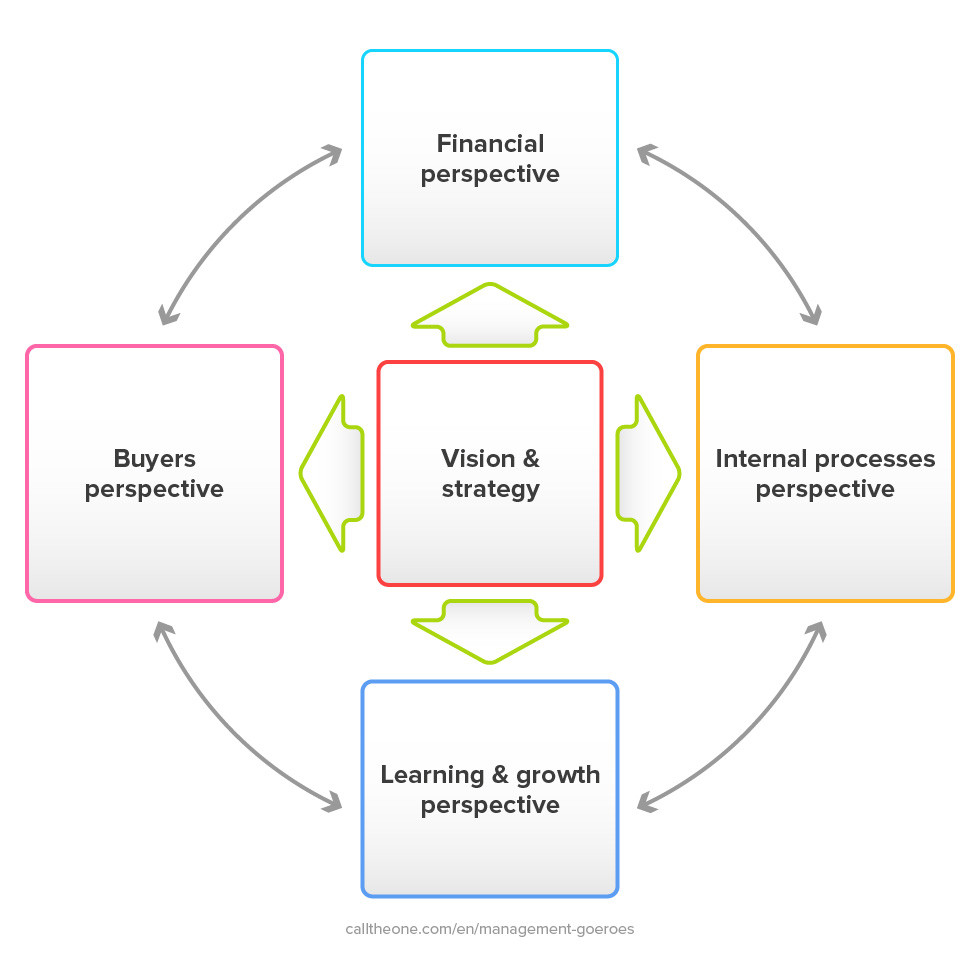
Figure 1: Aspects of balanced scorecard
[Sources: Influenced by Quesado et al. 2018]
Financial status of an organisation has been measured through implication of a balance score cardthat helps in reduction of operational cost. As reported by Quesado et al. [2018], balance scorecard delivery indications to an organisation regarding expectation of consumers. Issues have been solved through improvement of issues by incorporating relevant strategies.
12. Evaluation of financial performance for a generation of recommendations
According to financial performance which has been identified from case study it highlights that operational cost of this hotel increases by 70%. Moreover, investment over workforces increases by 30% from 2019 to 2020.
However, additional material costs of this hotel are increased due to high investment over meetings and events. 91% cost has been invested by this hotel for delivery training regarding changes that appeared within organisation. Collaboration with foreign company declines issues regarding maintenance of financial assets of this hotel.
13. Action plan and recommendation
Implemented action plan for selected for Quality management tools
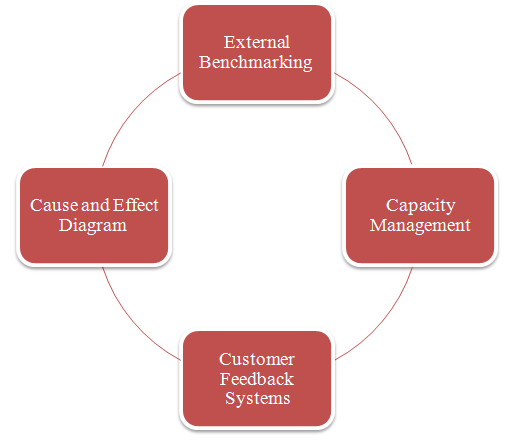
Figure 2: Quality Management Tools
[Source: As inspired by Oakland, 2014]
Knossos Boutique Hotel aims to expand further in competitive marketplaces, due to which level of performance is required to be developed along with mitigating existing issues. From a case study of Knossos Boutique Hotel, it has been found that this tourism business is facing major issues, due to which further improvement has been restricted.
Hudson and Hudson [2013] stated that improvement of customer services help tourism business to attract audiences positively that help businesses to explore in market regions. Thereby, implementation of an action plan would guide Mr. Burke as a chief executive and Miss. Boleyn, as a General Manager, to mitigate challenges in Knossos Boutique Hotel. It can compete with other tourism sectors like Go Turkish. By selecting proper QM tools, it would gain beneficial changes to address identified issues.
| Objectives | Measures to be taken | Impact | Time Bound |
| To incorporate external benchmarking | ● Comparison of Knossos Boutique Hotel with other tourism businesses in markets of Crete.
● Analysing level of performances with other hotels in the same regions. |
Incorporation of external benchmarking would help Knossos Boutique Hotel to function accurately, due to which it would be able to expand further in competitive business fields. By this QM tool, Knossos Boutique Hotel would be gaining advantages based on strengthening weaknesses to perform well in markets and compete with other tourism businesses. | 2 Months |
| To implement capacity management | ● Analysing existing capacity in organisation via performance monitoring tool.
● Controlling and updating key systems such as SAN, databases, server and cloud. ● Identification of opportunities for future company growth. |
Capacity planning incorporation in Knossos Boutique Hotel would guide in managing teamwork performances as it provides advantages based on autonomous team efforts. In this manner, Mr Burke of Knossos Boutique Hotel would be able to investigate regarding weaknesses and opportunities and perform accordingly in marketplaces. | 3 Months |
| To regulate customer feedback systems | ● Regulation of customer feedback systems can be managed by “Net Promoter Score (NPS).”
● Taking support from “Customer Satisfaction Score (CSAT)” ● Implementing “Customer Effort Score (CES)”. |
Regulating such types of measures for strengthening customer feedback systems would help Knossos Boutique Hotel positively. Additionally, identified issues in this Hotel which have been complained by customers based on cleanliness, hygiene, service quality and food quality can be accomplished. | 4 Weeks |
| To apply Cause and Effect Diagram | ● Identification of existing issues in organisations restricting growth of business.
● Involvement of major factors. ● Identifying key reasons behind emergence of issues. |
Application of cause and effect diagram would provide advantageous results to Knossos Boutique Hotel as it helps to understand core reasons for issue occurrence. Besides, demonstration of fishbone diagrams help to analyse relations that exist between cause of problems and its effect in organisations. | 3 Weeks |
Table 4: Action plan
[Source: Created by author]
Analysis of four selected tools of quality management for mitigating issues in Knossos Boutique Hotel
External Benchmarking
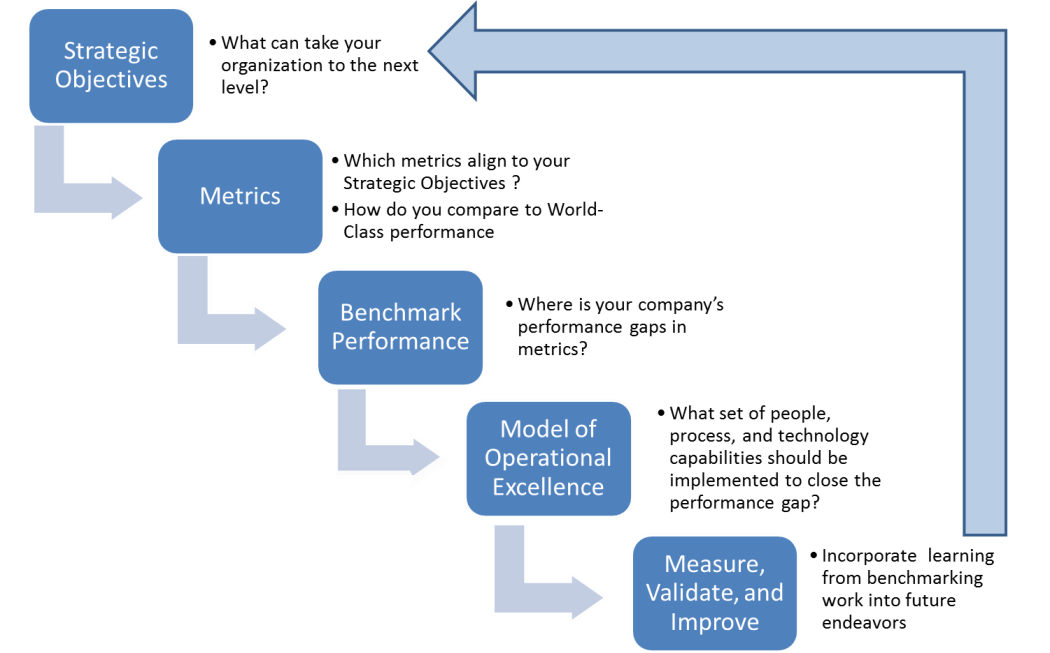
Figure 3: Measures for external benchmarking
[Source: As inspired by Meza-Ruiz et al. 2017]
External benchmarking tool has been chosen for managing the tourism business of Knossos Boutique Hotel. External benchmarking would be effective for operating in performance area, which would be managed and compared by senior management based on the level of performances in Knossos Boutique Hotel. From the action plan, it has been understood that application of this QM tool would be taking time of 2 weeks for completion of assigned activities.
Key performance indicators that have been influenced for incorporation of external benchmarking would be use of information followed by engagement of employees in organisations. Other than this, resources that can be envisaged are performance levels of employees, which intend to determine expansion of Knossos Boutique Hotel in markets.
Goetsch and Davis [2014] explained that external benchmarking helps to improve performances of employees in organisations positively, due to which it becomes easier to operate business functions suitably. However, complaints received by Knossos Boutique Hotel would be able to mitigate by elevating performances of staff.
Effectiveness of changes to services would be possible by incorporating external benchmarking, due to which Knossos Boutique Hotel would be gaining suitable results and able to satisfy customers with good service and product quality. Page et al. [2018] explained that development of human resources guide organisations to perform better and strengthen workforces.
In addition, it has been understood that effectiveness would be achieved by Knossos Boutique Hotel by incorporating functions via external benchmarking and help to support tourism business for further improvement. Other than this, effectiveness such as performance ability including customer services would change positively and would be able to meet customer expectations.
In this manner, rise of complaints from customers end at Knossos Boutique Hotel would be under control and aid in managing effective market position. Hence, incorporation of external benchmarking would be successful for presenting changes in Knossos Boutique Hotel along with mitigating issues. Apart from this, an increase of working effectiveness in this Hotel would help to satisfy customers from different regions and cultures. This would lead to increased chances of international market expansion of Knossos Boutique Hotel.
Benefits can be achieved in companies by incorporating external benchmarking, due to which organisations are able to perform efficiently in a competitive marketplaces. In the case of Knossos Boutique Hotel, positive outcomes would be obtained in a form of involvement of best practices so that business performs with efficacy.
This would be supportive for managing continuous developmental growth in tourism businesses and would help in managing issues such as cleanliness and customer services. Contrary, external benchmarking ten to increase risk factors regarding teamwork responses may not be accurate for meeting organisational objectives, which is a limitation.
According to Rusch et al. [2017] taking support from item response theory guide in addressing issues that take place due to limitations from external benchmarking procedures for incorporating changes in organisations. In this manner, it can be recommended to Knossos Boutique Hotel for application of Item response theory, which emphasises on improving external benchmarking key performance indicators.
This would significantly help to make effective changes by increasing teamwork responses applied by item response theory. In this action, senior management, Miss. Boleyn and Mr. Burke would be involved in managing functions in Knossos Boutique Hotel.
Capacity Management
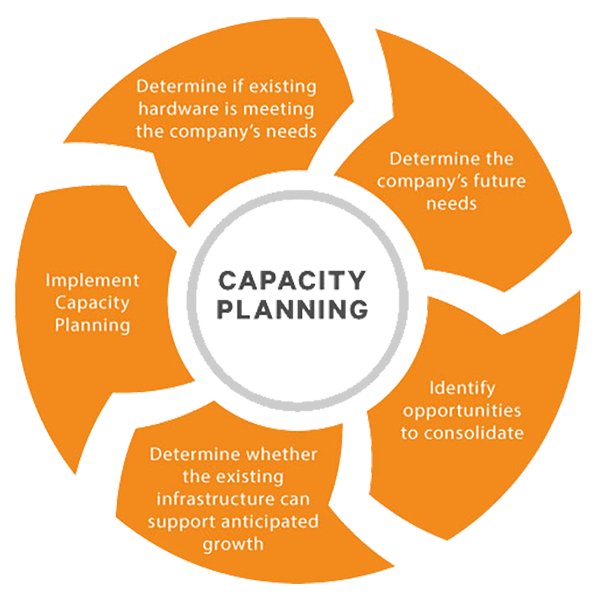
Figure 4: Capacity management
[Source: As inspired by de Abreu and Ceglia, 2018]
Capacity management has been selected for making effective changes in Knossos Boutique Hotel, so that it strengthens efficient form of databases alongside cloud and would be taking a time period of 3 Weeks. This applied quality management tool would be applied to areas that restore company information.
Application of this would guide Knossos Boutique Hotel to work properly as it leads to enhanced research and development (R&D). Development of technological aspects take place in organisations by implementing capacity management and ensures to address identified risk factors [Santoro et al. 2018, p. 347]. A key performance indicator of capacity management initiates with the number of incidents followed by exactness of unplanned activities and provides resolution steps for enhancing activities.
From case study it has been noted that management of this tourism company initiates with a short term strategy based on “fix it when it’s broken”, due to which public areas and pools including baggage services can be improved. In this manner, resources from Knossos Boutique Hotel can be envisaged by keeping records of functions along with ability to meet customer expectations.
Effectiveness in Knossos Boutique Hotel can be achieved by implementing capacity management as it tends to involve better form of adjustments and helps in increasing company demands in markets.
From Knossos Boutique Hotel business case, it has been understood that customers complain about cleanliness, hygiene, poor conduct of customer services and food quality, which requires to be enhanced for better performances. Implementing capacity management would guide Knossos Boutique Hotel for gaining effectiveness in form of efficient work performances.
Tung and Law [2017] asserted that improving customer experience helps tourism organisations to achieve competitive advantage to explore in further markets. In this regard, it has been understood that implementation of capacity management would be supportive for Knossos Boutique Hotel for providing efficient changes suitably, from which attending attracted an audience would be easier that would assist for market sustainability for a long duration.
Organisational changes take place accordingly that majorly depends on implemented theories, models with proper concepts. In Knossos Boutique Hotel business case, it has been found that employee turnover from the food and beverage department and housekeeping department has affected service quality adversely.
Implementation of capacity management in Knossos Boutique Hotel would help to increase performances as it presents benefits for foreseeing scope of future development. It also facilitates beneficial outcomes to Knossos Boutique Hotel by improving a quality of software architecture, which is used in creating content. On a contrary, capacity management fails to prevent situations based on fire drill. For instance, software applications running out of storage capacity intend to create alarms and warnings before data burns out.
However, this type of issue cannot be addressed by capacity management and this is considered as a major limitation to drop down level of organisational performances. This type of situation can be properly managed by applying theory of constraints (TOC), due to which Knossos Boutique Hotel would be receiving profitable changes. This theory would guide information that leads to strengthened data of software and relevant applications by capacity management.
Besides, IT department of Knossos Boutique Hotel would be involved in implementing capacity management, so that software programming and application quality can be managed efficiently.
Customer feedback system
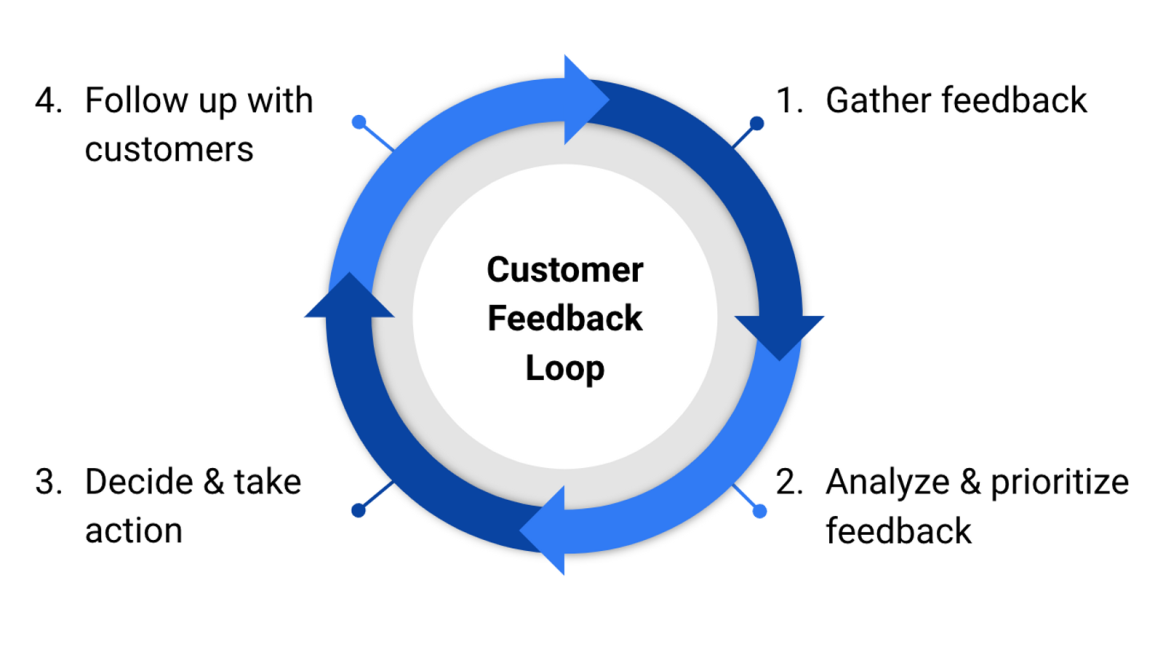
Figure 5: Customer feedback system
[Source: As inspired by Silva et al. 2019]
Customer feedback system is another quality management tool, which has been selected for presenting suitable changes in Knossos Boutique Hotel and would be taking time within 3 weeks. Additionally, selected QM tools such as customer feedback systems would be applied in different working departments so that customer experiences changes and contributes positively to the salespoint.
Shum et al. [2018] suggested that involvement of leadership competency guide in managing work performance in organisations, due to which it becomes easier for companies to meet customer expectations. In this regard, Knossos Boutique Hotel would be successful to fulfil demands for potential customers from different countries such as Greece and UK.
Key performance indicator of customer feedback systems is “Customer Satisfaction Score (CSAT)”, from which it helps to understand the level of satisfaction to consumers. Other than this, resources such as conducting an online survey to customers would help Knossos Boutique Hotel to analyse customers’ responses to provide food and accommodation quality.
However, resources can be envisaged and a number of complaints from customers end that due to poor hygiene and cleanliness including poor performances of customer service and food quality has been unsatisfactory.
Improved form of customer experiences guides organisations to attend potential customers more in numbers. Additionally, existence of good customer service quality, food quality, it helps organisations to meet expectations of customers accurately. From Knossos Boutique Hotel case, it has been found out of 50 responses, 40 responses have complaints on hygiene and poor room services, poor service quality and lack of cuisine opportunities.
Wu et a. [2018] ascertained that quality of service helps to increase the value of organisation in competitive markets. Similarly, in this tourism business of Knossos Boutique Hotel, regulation of customer feedback systems would help in managing customer service quality by mitigating issues related to cleanliness of rooms, food quality efficiently.
Effectiveness would be obtained by this company as application of customer feedback system, quality management tool aid in lessening number of issues. In this manner, potential customers’ demands would be fulfilled by increasing efficiency in employee’s performances and level of engagement.
Conducting surveys by the help of customer feedback systems, organisations receive beneficial outcomes as it is cost and time efficient. This would help Knossos Boutique Hotel to analyse customer requirements, from which it would be easy to attract more numbers of international audiences and help in strengthening revenue income.
On the other hand, Jaakkola and Aarikka-Stenroos [2019] criticised customer feedback systems as it involves responses to customers, which have the possibility of customer burnout due to bad customer experience. This tends to affect performances of customer feedback systems negatively and makes it difficult for organizations to influence customer engagement. Besides, customers of Knossos Boutique Hotel are not satisfied with operations and food quality, due to which chances for future development restrict.
Cheng and Md. Rashid [2013] established an improved form of service quality of aid organisations for managing loyalty of customers and helping to maintain market position by sustaining for duration. In this regard, it can be recommended to Knossos Boutique Hotel to hire skilful employees with leadership approaches, so that each department like baggage’s, room services and food quality can be marinated accurately for meeting customer expectations. In this activity, general manager, Miss.
Boleyn would be involved in managing activities for hiring skilful employees to develop customer and food services quality, due to which customer’s expectations would be accomplished.
Cause and Effect Diagram
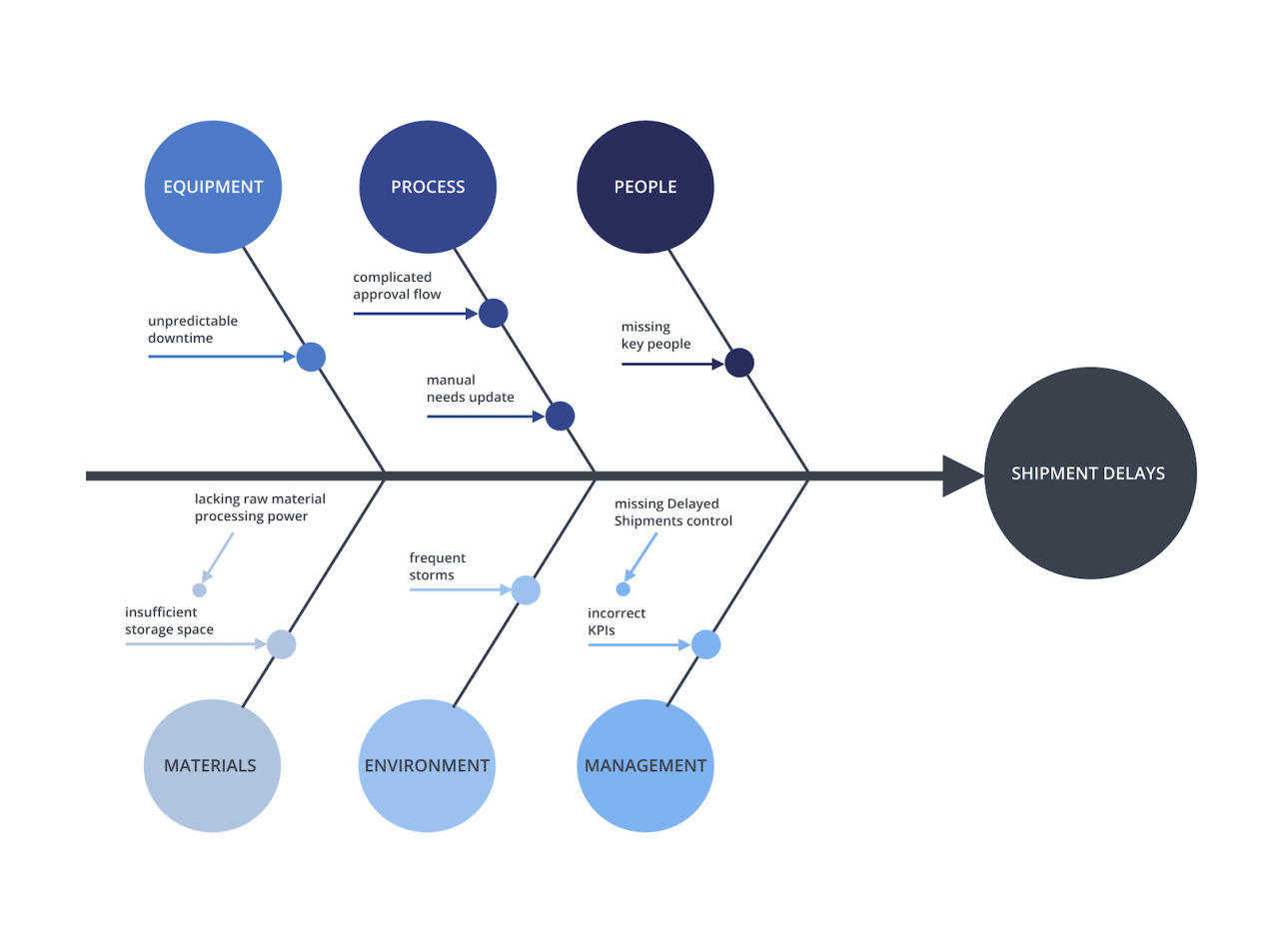
Figure 6: Cause and Effect diagram
[Source: As inspired by Cosenz and Noto, 2018]
Cause and effect diagram has been selected for making effective changes in Knossos Boutique Hotel, which would be applied to the department of management for better performances. Moreover, application of cause and effect diagram would be performed within a time scales of 3 weeks, due to which Knossos Boutique Hotel would be able to perform appropriately.
According to Tussyadiah and Park [2018] the development of activities aid in managing performances in organisations, from which management performance enhances and creates a peaceful working environment. In the tourism business of Knossos Boutique Hotel, it has been noted that employee turnover from different departments has taken place and is affecting work flow negatively.
However, key performance indicators of cause and effect diagram are identifying issues on a management level that restrict organisational growth in competitive business fields. From this, it has been understood that application of cause and effect diagram would be suitable for Knossos Boutique Hotel in terms of receiving effectiveness to perform well and emphasis on meeting customer’s requirement.
Resources that would be required is ability to identify existing issues, and accordingly help in implementing resolving steps for better productivity in international markets. However, Rana et al. [2019] viewed that application of cause and effect diagram helps in managing employee relations that delves with identification of issues and ensures to analyse reasons for occurrence of issues.
In the tourism business of Knossos Boutique Hotel, considering cause and effect analysis helps to identify additional issues that tend to adversely affect overall performance. Identification of internal issues would present benefits to Knossos Boutique Hotel, due to which it would be able to gain market exploration and would gain ability to satisfy customers.
On the other hand, limitation of cause and effect diagram has been noted that it tends to possibility based on messy positioning of issues, due to which procedure of identifying issues may not be effective towards managing productivity. This type of limitation can be addressed by increasing practising of drawing cause and effect diagrams, so that possibility for inappropriate procedures for identification of issues can be accomplished.
In this manner, Knossos Boutique Hotel would be obtaining benefits and help in mitigating limitations, from which it would be able to identify additional issues and ensure to present mitigation steps. Senior management and general manager of Knossos Boutique Hotel would be involved in implementing this objective regarding application of cause and effect diagram quality management tool into actions.
14. Artificial Intelligence (AI) and Robotics for improvement of Knossos Boutique Hotel performances
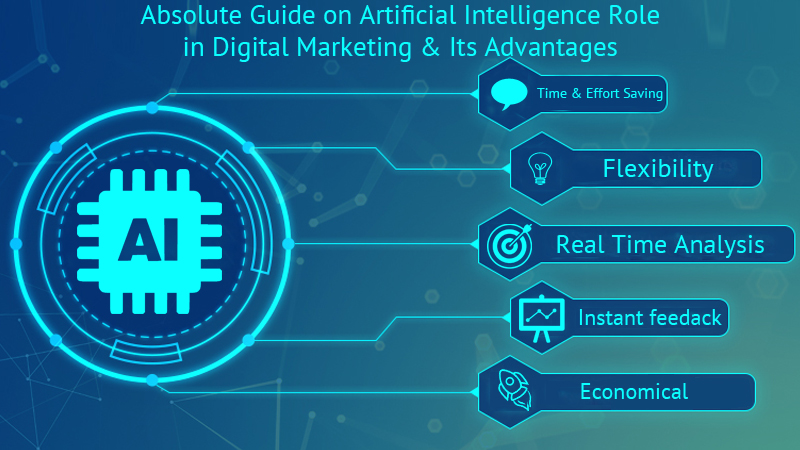
Figure 7: Outcomes for applying Artificial intelligence
[Source: As inspired by Chan and Tung, 2019]
Artificial intelligence needs to be required to be implemented in Knossos Boutique Hotel for further development so that it can achieve extended form of market share. Wu and Ko (2013) explained that improving different department and tourism associates to facilitate successful opportunities for organisations to explore overseas markets.
In addition to this, it can be recommended to Knossos Boutique Hotel that application of artificial intelligence would help in making effective decisions, so that it can perform well. It would provide benefits based on analysing practical evidence. In this manner, Knossos Boutique Hotel would be gaining successful outcomes by improvement of economic infrastructure.
This would help to enhance performances of Knossos Boutique Hotel and would be able to address issues related to cleanliness, customer services, and food quality. In this way, this tourism business would be able to perform in competitive markets better with technological advancements.
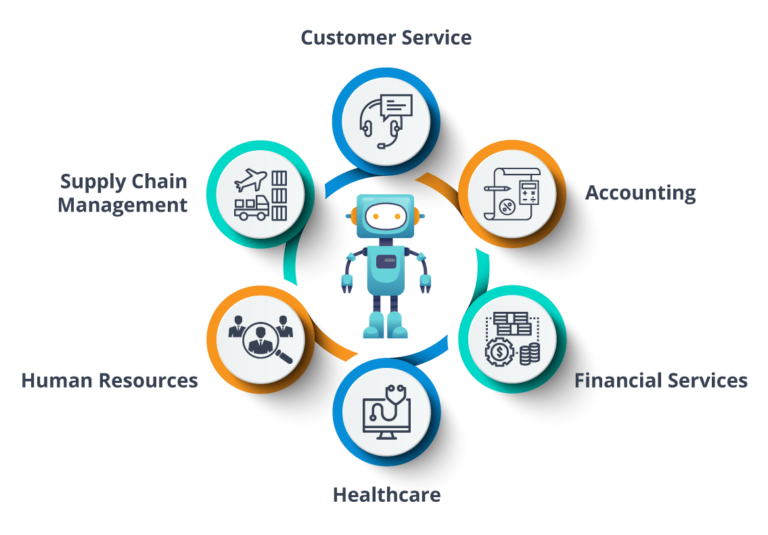
Figure 8: Possibility of changes by Robotics
[Source: As inspired by Kuo et al. 2017]
Robotics installation is required to be in the department of customer services, from which it would be convenient for international audiences. For instance, emerging international customers from different cultures come up with different communication styles, due to which employees face issues related to communicating with foreigners.
By the help of robotic communication, it would be easier to interact as it translates as per listener’s convenience and would lead to develop programming in Knossos Boutique Hotel. Choi et al. [2019] established that applying robots in operations in organisations help to detect the type of languages used by employees and customers, from which it helps to understand the core motive for interacting.
Besides, involvement of robotics would facilitate significant changes in Knossos Boutique Hotel, from which employees would be able to understand foreign languages with ease.
Installation of robotics and artificial intelligence help to enhance level of performances positively in Knossos Boutique Hotel. From findings, it can be suggested that an increase use of social media platforms would help to strengthen brand positioning of this hospitality sector for long term.
In other words, application of social media platforms like “Facebook, Instagram and YouTube” would help Knossos Boutique Hotel to attract international customers by which overall revenue income would increase. By suing such techniques and ensuring good customer services would be provided maintaining cleanliness and well accommodation would help this hospitality business to sustain in competitive markets for a long duration.
Other than mitigating language issues in workplaces, it also aids to enhance accounting, financial operations, and customer services and supply chain management and helps Knossos Boutique Hotel to increase quality of productivity. Pereira-Moliner et al. [2016] argued that robotics involvement increases the costing plan, which may be difficult for small-medium enterprises as it requires high maintenance expenditure.
In this respect, Knossos Boutique Hotel would be working on inputting strategic planning for managing expenditure plans so that robotics can be regulated with reasonable pricing strategies and gain positive outcomes. Considering robotics in Knossos Boutique Hotel would lead to convey technological advancements, which guide in improving performances positively.
15. Conclusion and recommendations
Recruitment of right employees reduces challenges that are faced by this hotel in terms of facing high employee turnover rate. On the other hand, training needs to be provided in a systematic manner so that better clarification regarding organisational objectives can be conveyed to staffs. On the other hand, offering relevant compensation to customer through tracking their performances increases motivation of employees.
Accurate services will be offered to buyers through collaborating knowledge. Reward employees fulfilling the needs of a customer that maintains their job satisfactions. Offering social recognition to employees increases their engagement. Estimation of market condition supports an organisation in developing organisational objectives in an accurate way.
Execution of business practises through developing plans raises profit scale. Requirements of raw material are identified from market research that supports in fulfilling demand. This report describes various issues like poor employee engagement and high complaints delivered by customers reduces reputation with Greece.
Moreover, external factors have been analysed through execution of PESTLE that helps in developing proper strategies. Competition in market of Greece has been analysed in this report for execution of actions plan. Furthermore, financial analysis has been executed through implication of TQM tool. Justification regarding financial condition is conducted through determinations of financial statements.
16. References
Aguayo, S., Marshall, H., Pratten, J., Bradshaw, D., Brown, J.S., Porter, S.R., Spratt, D. and Bozec, L., (2017). Early adhesion of Candida albicans onto dental acrylic surfaces. Journal of dental research,96(8), pp.917-923.
Attala, J., (2021) Tech 10 ways smart technology is reshaping the hotel industry. Available at: https://www.hotelmanagement.net/tech/10-ways-smart-technology-reshaping-hotel-industry [Accessed on 24th February, 2021]
Bazarkina, D. and Pashentsev, E., (2019). Artificial intelligence and new threats to international psychological security. Russia in Global Affairs, 17(1), pp.147-170.
Chan, A. P. H., and Tung, V. W. S. (2019) Examining the effects of robotic service on brand experience: the moderating role of hotel segment. Journal of Travel & Tourism Marketing, 36 (4), pp. 458-468.
Cheng, B and Md. Rashid. Z.A. (2013) Service Quality and the Mediating Effect of Corporate Image on the Relationship between Customer Satisfaction and Customer Loyalty in the Malaysian Hotel Industry, Gadjah Mada. International Journal of Business, 15 (2) pp. 99 – 112.
Chiat, L.C. and Panatik, S.A., (2019). Perceptions of employee turnover intention by Herzberg’s motivation-hygiene theory: A systematic literature review. Journal of Research in Psychology, 1(2), pp.10-15.
Choi, S., Liu, S. Q., & Mattila, A. S. (2019). “How may i help you?” Says a robot: Examining language styles in the service encounter. International Journal of Hospitality Management, 82, 32-38.
Coombs, W.T. and Laufer, D., (2018). Global crisis management–current research and future directions. Journal of International Management, 24(3), pp.199-203.
Cosenz, F. and Noto, G., (2018). A dynamic business modelling approach to design and experiment new business venture strategies. Long Range Planning, 51(1), pp.127-140.
Dave, C.V., Kesselheim, A.S., Fox, E.R., Qiu, P. and Hartzema, A., (2017). High generic drug prices and market competition: a retrospective cohort study. Annals of internal medicine,167(3), pp.145-151.
de Abreu, M.C.S. and Ceglia, D., (2018). On the implementation of a circular economy: The role of institutional capacity-building through industrial symbiosis. Resources, conservation and recycling, 138, pp.99-109.
Ec.europa.eu (2021) Eco-innovation at the heart of European policies. Available at: https://ec.europa.eu/environment/ecoap/greece_en#:~:text=Environmental%20policy%20in%20Greece%20focuses,agriculture%20and%20the%20food%20industry. [Accessed on 24th February, 2021]
Ec.europa.eu (2021) Greece. Available at: https://ec.europa.eu/info/sites/info/files/national-consumer-organisations_greece-en_3.pdf [Accessed on 24th February, 2021]
Eige.europa.eu (2021) Gender Equality Index. Available at: https://eige.europa.eu/gender-equality-index/2020/EL [Accessed on 24th February, 2021]
Goetsch, D. L. and Davis, S. (2014) Quality Management for Organisational Excellence: Introduction to Total Quality. 7th ed. Harlow: Person Education Ltd.
Hudson, S. and Hudson, L. (2013) Customer Service for Hospitality and Tourism. Oxford: Good fellows Publishers Ltd
Hussein, S.S. and Muchemi, A., (2019). Michael Porters five forces on performance of savings and credit cooperative societies in Nairobi City County, Kenya. International Academic Journal of Human Resource and Business Administration, 3(7), pp.14-35.
Jaakkola, E. and Aarikka-Stenroos, L., (2019). Customer referencing as business actor engagement behavior–Creating value in and beyond triadic settings. Industrial marketing management, 80, pp.27-42.
Kumar, A., (2019). Oligopolistic suppliers, symbiotic value chains and workers’ bargaining power: labour contestation in South China at an ascendant global footwear firm. Global Networks,19(3), pp.394-422.
Kuo, C. M., Chen, L. C., & Tseng, C. Y. (2017). Investigating an innovative service with hospitality robots. International Journal of Contemporary Hospitality Management, 29(5), 1305-1321.
Long, W., Li, S., Wu, H. and Song, X., (2020). Corporate social responsibility and financial performance: The roles of government intervention and market competition. Corporate Social Responsibility and Environmental Management, 27(2), pp.525-541.
Meza-Ruiz, I.D., Rocha-Lona, L., del Rocío Soto-Flores, M., Garza-Reyes, J.A., Kumar, V. and Lopez-Torres, G.C., (2017). Measuring business sustainability maturity-levels and best practices. Procedia Manufacturing, 11, pp.751-759.
Oakland, J.S. (2014) Total Quality Management and Operational Excellence: Text and cases. 4th ed. New York: Routledge
Oblak, L., Pirc Barčić, A., Klarić, K., KitekKuzman, M. and Grošelj, P., (2017). Evaluation of factors in buying decision process of furniture consumers by applying AHP method. Drvnaindustrija: Znanstveničasopis za pitanjadrvnetehnologije, 68(1), pp.37-43.
Page, S. Bentley, T. Teo, S. and Ladkin, A. (2018) The dark side of high performance human resource practices in the visitor economy, International Journal of Hospitality Management 74 (2018) 122– 129.
Pereira-Moliner, P. Pertusa-Ortega, E. M. Tarí, J. J. López-Gamero, M. D. and Molina-Azorín, J. F. (2016) Organizational design, quality management and competitive advantage in hotels, International Journal of Contemporary Hospitality Management Vol. 28 No. 4, pp. 762-784
Pop, N.A. and Pelau, C., (2017). Correlations within the EFQM business excellence model by applying a factor analysis. Amfiteatru economic,19(44), pp.28-40.
Quesado, P.R., Aibar Guzmán, B. and Lima Rodrigues, L., (2018). Advantages and contributions in the balanced scorecard implementation. Intangible capital,14(1), pp.186-201.
Rana, N.P., Barnard, D.J., Baabdullah, A.M., Rees, D. and Roderick, S., (2019). Exploring barriers of m-commerce adoption in SMEs in the UK: Developing a framework using ISM. International Journal of Information Management, 44, pp.141-153.
Rusch, T., Lowry, P.B., Mair, P. and Treiblmaier, H., (2017). Breaking free from the limitations of classical test theory: Developing and measuring information systems scales using item response theory. Information & Management, 54(2), pp.189-203.
Santandertrade.com (2021) Greece: Economic And Political Outline. Available at: https://santandertrade.com/en/portal/analyse-markets/greece/economic-political-outline [Accessed on 24th February, 2021]
Santoro, G., Vrontis, D., Thrassou, A. and Dezi, L., (2018). The Internet of Things: Building a knowledge management system for open innovation and knowledge management capacity. Technological forecasting and social change, 136, pp.347-354.
Sharma, C., (2017). Initiating and linking total quality management in libraries. World Wide Journal of Multidisciplinary Research and Development, 3(10), pp.119-122.
Shum, C. Gatling, A. and Shoemaker, S. (2018) A model of hospitality leadership competency for frontline and director level managers: Which competencies matter more? International Journal of Hospitality Management 74 p.p. 57–66.
Silva, D.S., Ghezzi, A., de Aguiar, R.B., Cortimiglia, M.N. and ten Caten, C.S., (2019). Lean Startup, Agile Methodologies and Customer Development for business model innovation. International Journal of Entrepreneurial Behavior& Research.
Statista.com (2021) Greece: Employment from 2011 to 2021. Available at: https://www.statista.com/statistics/276414/employment-in-greece/ [Accessed on 24th February, 2021]
Statista.com (2021) Gross domestic product (GDP) growth rate in Greece 2025. Available at: https://www.statista.com/statistics/263605/gross-domestic-product-gdp-growth-rate-in-greece/ [Accessed on 24th February, 2021]
Statista.com (2021) Inflation rate in Greece 2025. Available at: https://www.statista.com/statistics/276351/inflation-rate-in-greece/ [Accessed on 24th February, 2021]
Tung, V. W. S., and Law, R. (2017). The potential for tourism and hospitality experience research in human-robot interactions. International Journal of Contemporary Hospitality Management, 29(10), 2498-2513.
Tussyadiah, I. P., and Park, S. (2018). Consumer evaluation of hotel service robots. In Information and communication technologies in tourism 2018 (pp. 308-320). Springer, Cham
Wto.org (2021) Greece and the WTO. Available at: https://www.wto.org/english/thewto_e/countries_e/greece_e.htm [Accessed on 24th February, 2021]
Wu, H.C. & Ko, Y. J. (2013) Department of Tourism, Recreation and Sport Management, Assessment of Service Quality in the Hotel Industry Journal of Quality Assurance in Hospitality & Tourism, 14:218–244
Wu, W. Qomariyah, A. Sa, N. T. T. and Liao, Y. (2018) The Integration between Service Value and Service Recovery in the Hospitality Industry: An Application of QFD and ANP, International Journal of Hospitality Management 75 (2018) 48–57
Appendix 1: Profit and loss statement
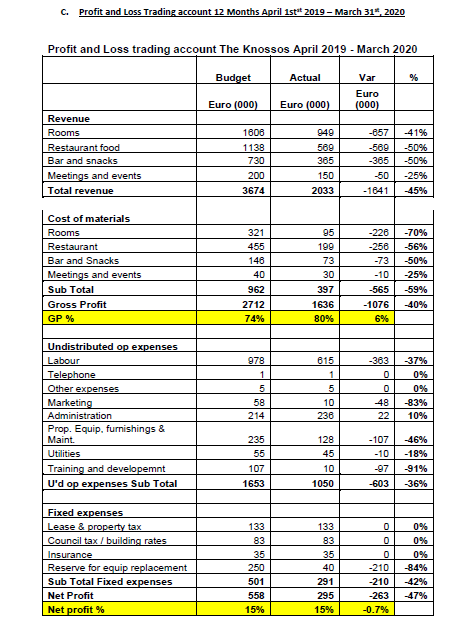
Know more about UniqueSubmission’s other writing services:

